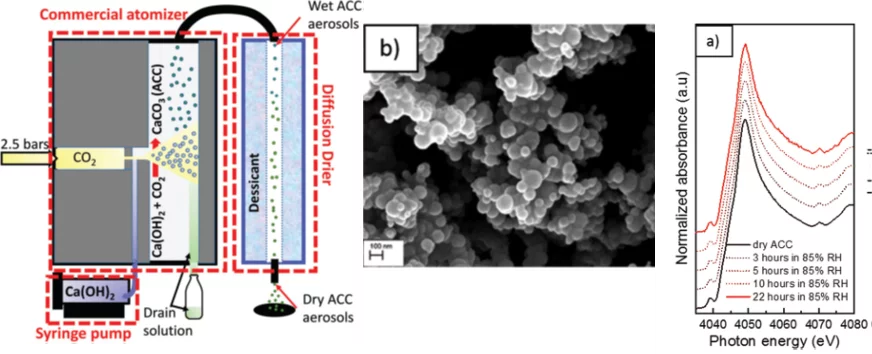Calcium carbonate is an important material for biomineralization, it is used in a variety of industrial applications, as well as for carbon capture technologies. Despite being a seemingly simple mineral, it still intrigues researchers who aim at deciphering the nucleation pathways and the stability of the resulting polymorphs. The nucleation of calcium carbonate follows a multistep process involving formation of amorphous calcium carbonate (ACC) as first intermediate. There are various synthesis procedures for ACC, mostly based on chemical reactions in bulk solutions, which create ACC of different stability and purity. When stored in moist air, most synthesized ACC gradually crystallizes.
We have developed a reproducible aerosol-based synthesis method for obtaining additive-free ACC samples with enhanced stability against humidity-induced crystallization. Here we use a spray of micrometer sized aerosols from a calcium hydroxide solution, which reacts quickly with CO2. Fast drying of the reacted droplets while still airborne produces pure and clean ACC particles, which are stable against crystallization for a period of days. The stability of these ACCs have been studied by time-resolved in situ techniques including XAS and FTIR.
The production of clean and stable ACC is an important step, as it allows to start further processing ACC under well controlled and hence reproducible conditions, which is essential for understanding the underlying physical and chemical processes involved in different industrial applications.
Contact
Original Publication
-
Xto JM, Borca CN, van Bokhoven JA, Huthwelker T
Aerosol-based synthesis of pure and stable amorphous calcium carbonate
Chemical Communications. 2019; 55(72): 10725-10728. https://doi.org/10.1039/C9CC03749G
DORA PSI
